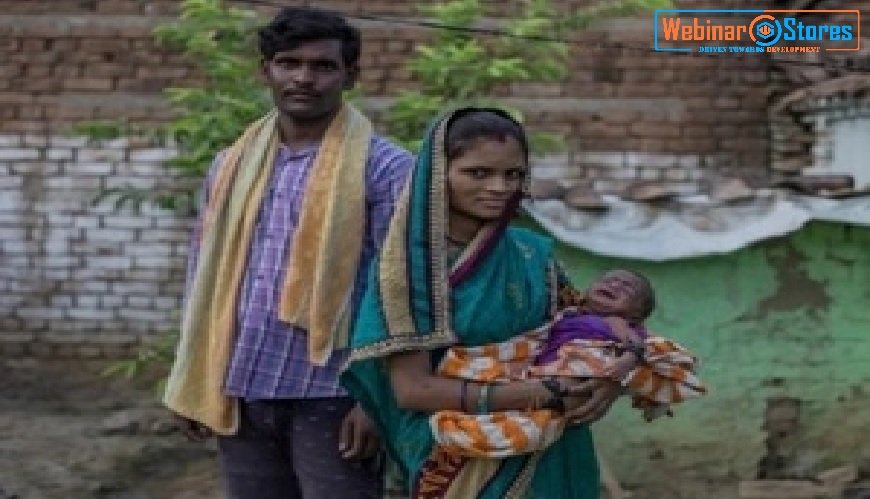
- 8 Dec
- 2020
The Birth of a New Beginning During a Pandemic
The Birth of a New Beginning During a Pandemic
In early March this year, Asharam and his wife Roshni Devi were eagerly awaiting the birth of their child. Asharam had a small-time job at a biscuit factory in Delhi where he was earning about Rs 10,000 a month. For months, he had been saving any little amount he could manage so that he could buy essential stuff after the baby arrived.
But life took an unexpected, troublesome turn when the Covid-19 pandemic hit India and the biscuit factory had to shut down. Asharam and Roshni tried to hang on in Delhi for a few weeks but with no work or income coming in, paying for even basic necessities became tough. “It was a choice of going hungry or going back to our village,” says 24-year-old Asharam dejectedly.
It was a choice that millions of India’s informal workers faced as the Covid-19 pandemic swept across the country. Almost 90 per cent of the workforce in India is employed in the informal sector, and most of them struggled to find work. According to a report by the Centre for Monitoring Indian Economy (CMIE), as much as 75 per cent of the 122 million Indians who lost their jobs in April were small traders and daily-wage labourers.
In April, the couple moved home to their village in Jhansi district in Uttar Pradesh, about 550 km from Delhi. It was a difficult journey for 22-year-old Roshni as she was seven-and-a-half months pregnant. "Many times I felt dizzy and was about to faint, but I was responsible for two lives, which kept me moving," she says.
Returning to the village wasn’t easy because all that the couple had there was a ramshackle hut which did not even have a toilet. Orphaned when he was seven years old, Asharam had been brought up by his grandparents, who died a decade later. So, he neither had any immediate family nor even land that he could fall back on to pull him through this tough time.
But hope for the baby kept Asharam and Roshni going strong in the bleak weaks. On 7 May, they were blessed with a baby boy whom they named Aham. “It was the happiest day of my life! I named my son ‘Aham’ which means ‘important’ because he’s given a new beginning to my life, something to hold on to during these dark hours,” says Asharam.
The couple got some financial and legal help from Jan Sahas, a partner of United Nations Development Programme (UNDP), which was aiding informal sector workers to get paperwork cleared that would enable them to avail government schemes. “They gave us food, ration and helped me get a government identity card too, but it wasn’t enough after Aham was born,” says Asharam. “I had to borrow money from a local moneylender too.”
But the funds have come at a high price. Asharam borrowed about Rs 5,000 from the moneylender after Aham’s birth with the conditions that he return around Rs 8,000 in six months. “I have to pay him back before the end of the year but I still don’t have a steady income. I don’t know how I’m going to collect so much money,” says Asharam, worried about his finances and the future of his baby boy.
That’s another challenge that India’s informal sectors are facing now. With many still struggling to find steady work, they’re susceptible to being exploited. According to an ILO report, about 400 million workers in the informal economy are at risk of falling deeper into poverty during the crisis. Like Asharam, they’re hoping for a new beginning in these hard times.
You can help them look towards a brighter future by contributing to the Open Up India fund. Even a little help can go a long way in helping Asharam and thousands like him to restart their lives with hope and dignity.
Note: - As every caution has been taken to provide our readers with most accurate information and honest analysis. Please check the pros and cons of the same before making any decision on the basis of the shared details.











